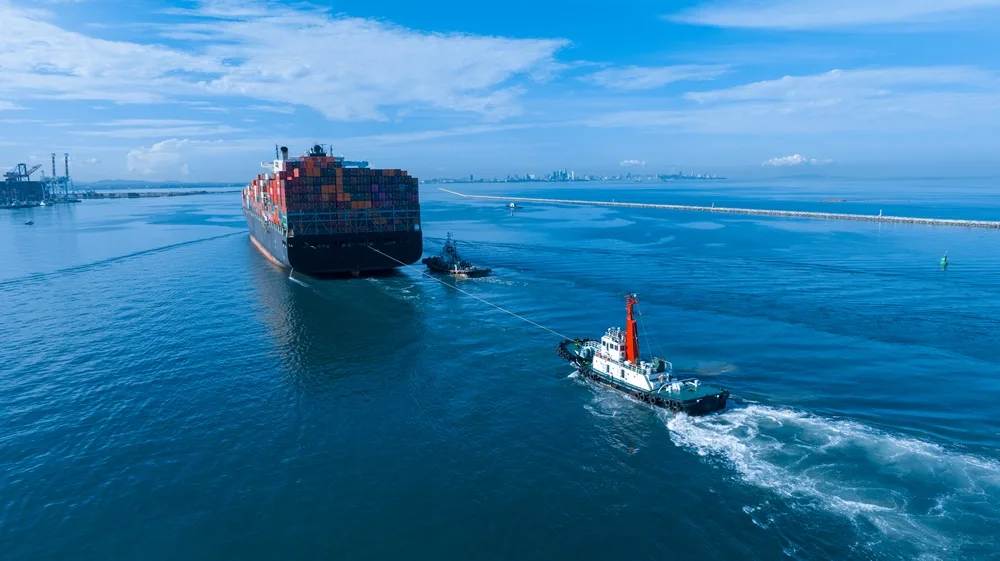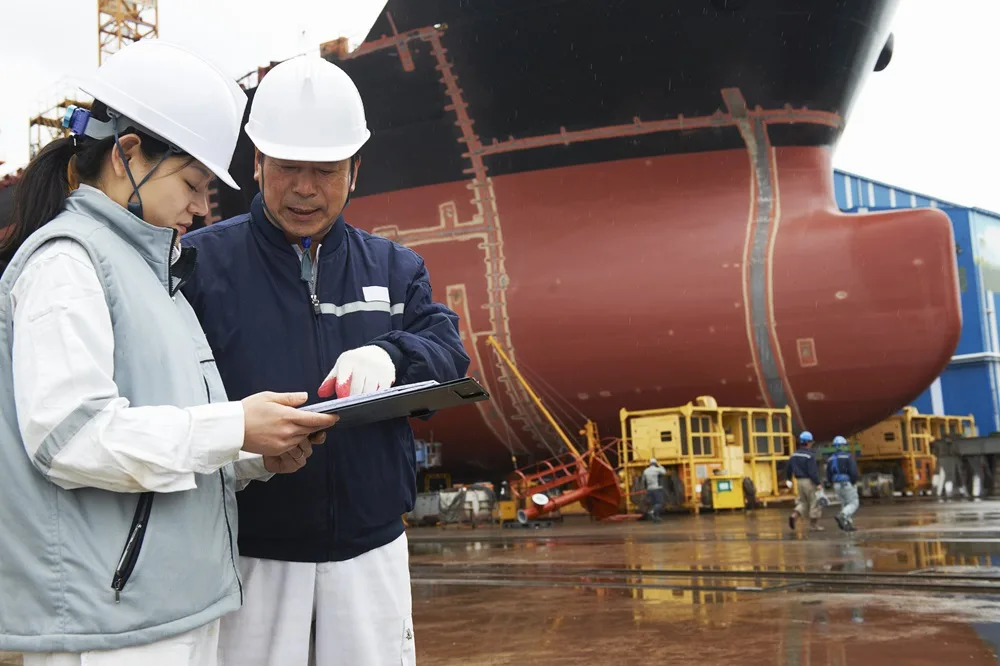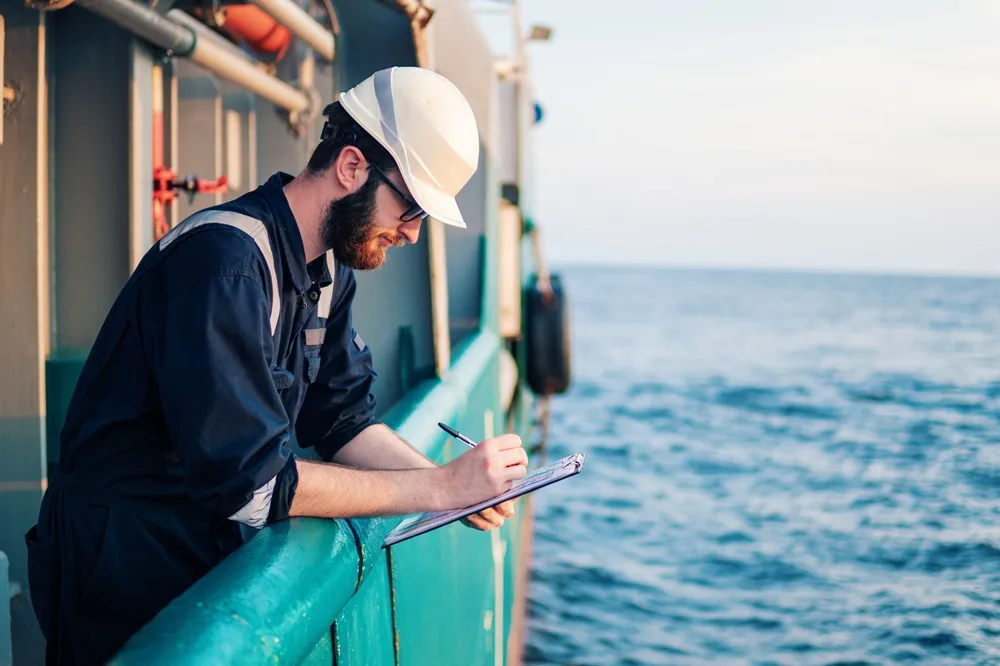
What is Marine Liability Insurance?
Marine liability insurance is a specialized type of insurance designed to protect individuals and businesses operating in the maritime industry from various liabilities. This insurance covers a wide array of potential risks associated with maritime activities, such as personal injury, property damage, and pollution. But why is it so crucial? Imagine owning a shipping business where a single incident could lead not only to financial losses but also to legal complications. Marine liability insurance acts as a safeguard against such unforeseen circumstances.
Types of Marine Liability Insurance Policies in the USA
In the United States, the marine insurance sector offers several types of marine liability insurance policies, each tailored to meet specific needs. Here’s a closer look at the most common ones:
- Protection and Indemnity (P&I) Insurance: This policy covers shipowners for third-party liabilities, including injuries to crew, passengers, and others, as well as damage to cargo and property.
- Charterers’ Liability Insurance: If you are chartering a vessel, this policy covers liabilities arising from the use of the ship.
- Pollution Liability Insurance: This coverage is essential for those involved in activities that carry environmental risks, ensuring compliance with environmental regulations.
- Marina Operators’ Legal Liability Insurance: This is designed for operators of marinas and boatyards, covering liabilities arising from the storage and maintenance of customers’ boats.
Differences Between Marine Liability and Other Maritime Insurance Types
Marine liability insurance is often confused with other maritime insurance types such as hull insurance or cargo insurance. Here’s how they differ:
- Hull Insurance: This insurance covers physical damage to the ship itself. It’s like auto insurance for your vessel.
- Cargo Insurance: This type of insurance protects goods while being transported over water against loss or damage.
Marine liability insurance, on the other hand, focuses on third-party liabilities rather than the vessel or cargo itself. This distinction is crucial because it defines the scope of coverage and the kind of protection you can expect from your policy.
For more in-depth resources and terminology, check out Investopedia’s guide on marine insurance.
Key Coverage Areas
Marine liability insurance encompasses a variety of coverage areas that are crucial for anyone involved in maritime operations. Understanding these areas can help you tailor your policy to suit the specific needs of your maritime activities. Let’s break down the key coverage areas:
Personal Injury and Property Damage
One of the primary components of marine liability insurance is its coverage of personal injury and property damage. These are often the most common claims in the maritime industry. For instance, if a crew member is injured while on duty, the policy can cover medical expenses and potential lawsuits. Similarly, if property belonging to a third party is damaged due to your operations, the insurance can mitigate financial repercussions.
Pollution and Environmental Damage Liabilities
Environmental protection is a significant concern in maritime operations. Pollution liability insurance covers incidents that may result in the release of pollutants into the waterways. This is crucial for compliance with stringent environmental laws and regulations in the USA, as failing to adhere to these can lead to severe penalties and reputational damage.
Collision and Cargo Liabilities
Marine liability insurance also covers liabilities arising from collisions with other vessels. Collision liability is vital, especially in busy shipping lanes where the risk of accidents is higher. Similarly, cargo liability ensures that you’re covered if goods you’re transporting are lost or damaged, which can be particularly important if you’re handling high-value or sensitive cargo.
Legal Defense Costs
Legal disputes can be both stressful and expensive. Fortunately, marine liability insurance provides coverage for legal defense costs. This means your insurer will cover the costs of legal representation if you’re taken to court over a covered claim. This can save you significant amounts of money and help ensure you have expert legal support on your side.
Understanding these coverage areas is essential for making informed decisions about your insurance needs. Each area addresses specific risks unique to maritime operations, and having a comprehensive policy can provide peace of mind knowing you’re protected against a wide range of potential incidents.
For more detailed information on what each type of coverage entails, you can refer to Marine Insight’s guide on marine liability insurance.
Benefits of Marine Liability Insurance
Marine liability insurance isn’t just a box to check off in your maritime business operations; it offers substantial benefits that can safeguard your business’s future and stability. Let’s explore these benefits in more detail.
Protection Against Financial Losses
In the maritime industry, accidents and incidents can lead to significant financial losses. Whether it’s a collision, pollution incident, or personal injury, the costs can quickly accumulate. Marine liability insurance provides financial protection against these unexpected events. By covering legal fees, compensation claims, and repair costs, the insurance policy can prevent these incidents from severely impacting your financial resources.
Peace of Mind During Maritime Operations
Operating in a high-risk environment like the open sea can be stressful. Knowing that you have marine liability insurance in place can provide peace of mind. This assurance allows you to focus on your business operations rather than worrying about potential liabilities. It’s like having a safety net that ensures you’re prepared for whatever comes your way.
Compliance with Legal and Regulatory Requirements in the USA
The maritime industry is heavily regulated, with specific legal requirements that businesses must comply with. Marine liability insurance helps ensure you meet these legal obligations. For example, the Oil Pollution Act requires certain vessels to have proof of financial responsibility for oil spill liabilities. Failing to comply with such regulations can result in hefty fines and legal complications. Hence, having the right insurance coverage is not only a prudent choice but also a legal necessity.
Enhancing Business Reputation
In the maritime industry, reputation matters. By demonstrating that you have comprehensive insurance coverage, you show clients, partners, and stakeholders that you take your business responsibilities seriously. This can enhance your credibility and reputation in the industry, potentially leading to more business opportunities.
These benefits highlight why marine liability insurance is an essential component of any maritime operation. By providing financial protection, peace of mind, and compliance with regulations, this insurance allows maritime businesses to operate smoothly and confidently.
For further reading on the advantages of marine liability insurance, consider checking out resources from The International Risk Management Institute.
How to Choose the Right Policy

Selecting the right marine liability insurance policy is pivotal to ensuring that you are getting the protection you really need for your maritime activities. This involves evaluating your unique needs, comparing different providers, and understanding policy specifics. Let’s go through the steps to help you choose wisely.
Assessing Your Specific Maritime Activities and Risks
Every business in the maritime sector faces unique risks based on the nature of its operations. For instance, a cargo shipping company will have different liability concerns compared to a marina operator. It’s critical to assess these risks thoroughly. Make a comprehensive list of your maritime activities and their associated risks. This will give you clarity on what coverage areas are most critical for your operations.
Comparing Insurance Providers and Policy Options
Once you understand your needs, the next step is to evaluate various insurance providers. Look for companies that specialize in marine insurance as they will have a deeper understanding of the industry’s nuances. Compare policy options across these providers; check what coverage is included, what optional extras are available, and what exclusions might apply.
Here’s a quick checklist when comparing providers:
- Evaluate the company’s experience and reputation in marine liabilities
- Look at customer reviews and testimonials for insights
- Check whether the provider offers flexible policy options
- Consider the provider’s claim settlement ratio
Understanding Policy Terms and Conditions
Insurance jargon can be overwhelming. However, understanding the terms and conditions of your policy is crucial. Look out for key details including the policy limits, deductibles, exclusions, and any additional clauses that could affect your coverage. Don’t hesitate to ask your insurer to clarify anything ambiguous or confusing. Understanding these details can prevent unpleasant surprises when it comes time to make a claim.
Expert Advice on Selecting Marine Insurance
Getting expert advice can be invaluable. Consider consulting with an insurance broker who specializes in marine insurance. They can offer tailored advice based on their extensive knowledge of the market and help you navigate complex policy details. An expert’s insight can make a significant difference in ensuring you choose a policy that best fits your needs.
For detailed advice and resources on choosing the right marine insurance, Investopedia offers an insightful article on the subject.
Top Providers of Marine Liability Insurance in the USA

Choosing an insurance provider is a pivotal step in securing a reliable marine liability insurance policy. The USA has a number of established and respected insurers offering specialized marine insurance. Understanding their offerings can guide you in making an informed choice. Let’s take a closer look at some of the top providers.
Overview of Leading Insurance Companies
- Travelers Insurance: A well-known name in the insurance market, Travelers offers comprehensive marine liability coverage. They offer a variety of policies tailored for small yachts to large commercial vessels, specifically designed to address the unique needs of maritime businesses.
- Chubb: Known for their robust risk management solutions, Chubb offers marine liability insurance that covers a wide range of marine risks. Their policies often include protection for third-party bodily injuries, pollution damages, and even environmental cleanup costs.
- American International Group (AIG): AIG provides a broad spectrum of marine insurance products. Their marine liability policies are comprehensive, often including options like ship repairers’ liability and terminal operators’ liability, making them ideal for businesses with varied maritime activities.
- Liberty Mutual: Offering specialized marine insurance services, Liberty Mutual is another strong choice. They provide tailored coverage solutions that cater to the unique requirements of each maritime client, including extensive liability coverage.
Key Features of Their Offerings
Each provider has distinguishing features, such as:
- Travelers Insurance: Offers specialized claims services with a dedicated marine claims team to handle complex maritime claims efficiently.
- Chubb: Provides robust cyber-risk coverage options for vessels equipped with digital navigation and control systems, recognizing the growing importance of cybersecurity in maritime operations.
- AIG: Offers complementary risk engineering services to help businesses minimize potential risks and optimize their coverage needs.
- Liberty Mutual: Focuses on providing global reach with local expertise, ensuring they can deliver tailored solutions anywhere u need, whether your operations are local or international.
Customer Reviews and Ratings
While selecting your insurance provider, it’s beneficial to review customer ratings and testimonials. Here’s a general snapshot based on customer feedback:
- Travelers Insurance: Praised for their efficient claim process and customer service.
- Chubb: Renowned for its comprehensive coverage and personalized service, rated highly for customer satisfaction.
- AIG: Valued for their extensive global reach and flexibility in policy customization.
- Liberty Mutual: Customers appreciate their dedicated marine claims team and innovative policy offerings.
Choosing the right provider involves assessing these factors and determining which aligns best with your business needs and values. To delve deeper into reviews and ratings, Am Best offers comprehensive insights into insurance provider ratings.
Common Challenges and Solutions

Navigating the complexities of marine liability insurance can be challenging, even for seasoned maritime professionals. From understanding complex policy language to handling claims, various hurdles may arise. However, with the right strategies, these challenges can be effectively managed. Let’s explore some common issues and practical solutions.
Navigating Complex Policy Jargon
One of the most formidable challenges maritime businesses face is interpreting the dense and technical language often found in insurance policies. Terms such as “subrogation,” “indemnity,” or “p&I insurance” can be confusing and may deter people from thoroughly understanding their coverage.
Solution:
The key to overcoming this challenge is education and communication. Spend time understanding basic insurance terms and concepts. Many insurers provide glossaries or definitions that can help translate complex jargon. Moreover, don’t hesitate to ask your insurer or broker for clarification on any terms or conditions you do not understand.
Dealing with Claims and Disputes
Filing a claim and dealing with potential disputes is another area where challenges often arise. The claims process can be time-consuming and fraught with disputes over what is covered and what isn’t.
Solution:
Preparation is essential. Ensure that all documentation, such as incident reports, witness statements, and photographs, are ready and submitted promptly. Being meticulous with your documentation can significantly impact the efficiency of the claims process. Additionally, maintaining open lines of communication with your insurer can aid in resolving disputes amicably and quickly.
Mitigating Risks in Maritime Operations
The maritime industry is inherently risky, with exposure to environmental changes, potential accidents, and regulatory requirements. Finding ways to mitigate these risks is vital to minimizing potential claims and liability issues.
Solution:
Implement a comprehensive risk management strategy. This should include regular safety training for your crew, routine maintenance of your vessels, and staying updated with all local and international maritime regulations. Many insurance providers offer risk engineering services or consultative support to help identify potential risk areas and suggest mitigation strategies.
Understanding Regulatory Requirements
Regulatory requirements for maritime operations can be complex, with significant variations between states and federal mandates. Non-compliance can lead to severe financial penalties and impact your insurance.
Solution:
Stay informed of the latest maritime regulations and ensure compliance. Regularly review the legal obligations relevant to your operations, and consider employing a compliance officer or legal advisor specializing in maritime law. This proactive approach will not only help in compliance but can also reduce insurance premiums due to reduced risk profiles.
Addressing these common challenges effectively requires a proactive approach and a well-rounded understanding of your insurance policy and operational risks. For additional insights on handling challenges in marine insurance, the International Insurance Institute offers a wealth of resources as well as access to industry experts.

Conclusion
Navigating the intricate world of marine liability insurance in the USA is a crucial step for anyone engaged in maritime activities. From understanding the specific coverage areas, such as legal costs and environmental liabilities, to assessing the right insurance provider based on your unique risks, each step is designed to ensure comprehensive protection and peace of mind. The importance of this insurance cannot be overstated—it safeguards against financial ruin, assures compliance with complex regulations, and helps maintain a competitive edge by enhancing your business reputation.
Choosing the right marine liability insurance involves evaluating your specific needs, understanding the intricacies of policy terms, and consulting with experts who can provide valuable insights. By doing so, you ensure that you are fully covered against the myriad risks associated with maritime operations. Additionally, being aware of common challenges and having strategic solutions can greatly aid in navigating the insurance landscape efficiently.
Now that you’ve gathered a clear understanding, it’s time to take action. Review your current insurance coverage, consult with a marine insurance expert, and consider adjustments needed to your policy to ensure it aligns with your business’s evolving needs. Taking these proactive steps will help you sail confidently, knowing you are well-prepared to handle any challenges the waters may bring your way.
For those interested in more detailed comparisons and reviews of marine liability insurance options, or if you are ready to explore more about maritime law and insurance, you may visit resources such as the Insurance Information Institute for further information and guidance.
Thank you for embarking on this journey through marine liability insurance! Always feel welcome to revisit this guide as you navigate your operations. Safe sailing and successful ventures ahead!
FAQs on Marine Liability Insurance
- What is Marine Liability Insurance and why is it important?
Marine liability insurance protects businesses involved in maritime activities from liabilities. It covers risks like personal injury, property damage, and pollution. This insurance is crucial because it safeguards against unexpected incidents that could result in significant financial losses or legal issues. For more details, visit Marine Insight. - Who needs Marine Liability Insurance?
Businesses like shipping companies, marina operators, and vessel owners usually need marine liability insurance. It covers them against third-party claims and ensures compliance with legal and regulatory requirements. If your business involves any marine operations, this insurance is essential. - What types of coverage does Marine Liability Insurance offer?
It covers personal injury, property damage, pollution, and legal defense costs. Each type of coverage addresses specific risks faced in marine operations. Learn more about the coverage areas at IRMI. - How does Pollution Liability coverage work?
Pollution liability insurance handles claims related to environmental damage caused by maritime operations, such as oil spills. It helps in covering cleanup costs and any legal penalties. This is a must for companies involved in operations with potential environmental impact. - How can I choose the right Marine Liability policy?
Assess your risks, compare providers, and understand policy terms. Consulting with insurance experts can also guide you to select suitable coverage. For tips, Investopedia provides valuable insights. - What should I look for in an Insurance Provider?
Consider factors like experience, customer reviews, and level of coverage. Check their claim process efficiency. Providers like Travelers and Chubb are well-rated options in the USA. - How do I handle a claim with Marine Liability Insurance?
Document the incident well. Include all necessary reports, photos, and witness statements. Contact your insurer promptly and follow their claims process guidelines for a smooth experience. - Is Marine Liability Insurance mandatory in the USA?
While not always legally required, it’s highly recommended and sometimes mandated by specific maritime laws or contracts. It ensures compliance with environmental and safety regulations. - How can I reduce risks in my maritime operations?
Conduct regular safety training, maintain your vessels, and stay updated with maritime regulations. Insurance providers often offer risk management services to help you identify areas for improvement. - Where can I learn more about Maritime Law and Regulations?
You can refer to the website of the United States Coast Guard for comprehensive maritime regulations and guidelines that impact insurance needs.
Read More: Unlocking Yacht Insurance Costs in the USA: A Complete Guide for 2024